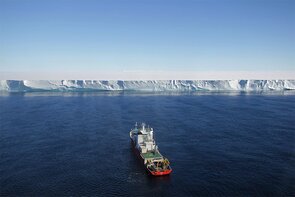
Profile
The positions in the table below reflect the Institute for Basic Science (IBS)'s position overall, domestically, within their sector, and in various subject areas based on their Share. Each position links to the corresponding table where Institute for Basic Science (IBS) is listed.
Position by research output Share
Position by research output Share in subject areas
Research
Overall research output
| Count | Share | |
|---|---|---|
| Overall | 333 | 78.41 |
Overall Count and Share for 'Institute for Basic Science (IBS)' based on the 12-month time frame mentioned above.
Research outputs by subject area
| Subject | Count | Share |
|---|---|---|
| Biological sciences | 55 | 12.09 |
| Chemistry | 142 | 33.32 |
| Earth & environmental sciences | 12 | 1.97 |
| Health sciences | 8 | 1.95 |
| Physical sciences | 219 | 53.29 |
Note: Articles may be assigned to more than one subject area, as a result the sum of the subject research outputs may not equal the overall research outputs.
Note: Hover over the donut graph to view the Share for each subject.
Share output for the past 5 years
Nature Strategy Reports
Identify research insights to guide research strategy and grow your impact with our Nature Strategy reports.
-
Actionable insights into research performance.
-
Detailed analysis of strengths and weaknesses.
-
Covers all major disciplines and regions of the world.

Explore the topics behind the 75,000 papers in the Nature Index 2024 Research Leaders
Collaboration
International vs domestic collaboration by Share
| Type | Percentage |
|---|---|
| International (702 institutions) | 43.7% |
| Domestic (86 institutions) | 56.3% |
Note: Hover over the graph to view the percentage of collaboration.
Top 5 domestic collaborators with Institute for Basic Science (IBS) by Share
Collaborating institutions
Share
Top 5 international collaborators with Institute for Basic Science (IBS) by Share
Collaborating institutions
Share
Job finder
Need to hire scientific researchers?
Nature Careers is visited by over 180,000 active jobseekers per month that you can target directly with your role. Application response rates have increased by 28% on average over 2022 averages.


